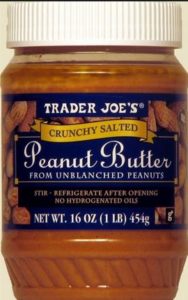“I would love to hear your thoughts on the popular drinks Shakeology and Vega One. I really like drinking a smoothie on my way to work. I usually put in things like hemp seed, flax seed, Greek yogurt, almond milk, and frozen fruit. But recently, a friend of mine was touting the benefits of Shakeology and telling me that I couldn’t possibly be getting the same nutrition in my morning smoothie as she gets from hers. What’s your take? Is Shakeology all it’s cracked up to be?”
I get three or four questions a week about Shakeology, which promises “a world of superfood nutrition in every glass.” You’ll pay about $5 a serving for this shake mix, which is a protein powder fortified with additional nutrients, herbs, and other goodies. “There’s nothing out there that can supply you with all the nutrients, vitamins, proteins, and minerals in these amounts,” they claim.
Your morning smoothie recipe sounds a lot like mine, Michelle. We’re getting plenty of protein, fiber, probiotics, prebiotics, and a variety of vitamins, minerals, and antioxidants. But are we getting as many nutrients from our whole food smoothies as your friend is getting from her processed shake powder? Probably not.
The real question, however, is whether your friend is getting any additional benefit from those additional nutrients.
I’m sure she thinks she is—why else would she be spending $5 bucks a pop? And the website is over-flowing with testimonials from enthusiastic users. But there’s not a lot of solid evidence to back this up.
For one thing, there’s not a linear relationship between how much of a nutrient you take in and the benefit you get from it. Taking twice as much of a nutrient doesn’t necessarily do you twice as much good.
Secondly, nutritional supplements almost never provide the same benefits as getting your nutrition from whole foods.
See also: Can I Get My Vegetables in a Pill?
I’m not convinced that any proven benefits come close to justifying the hefty price tag. Personally, I think I’d rather spend that money on food!
This post originally appeared at Quickanddirtytips.com





